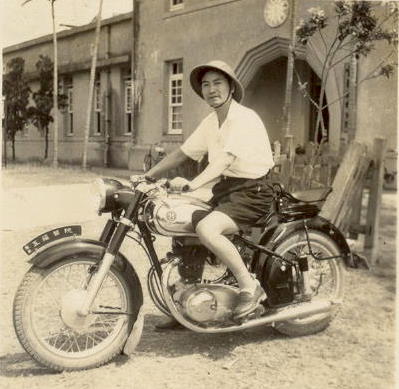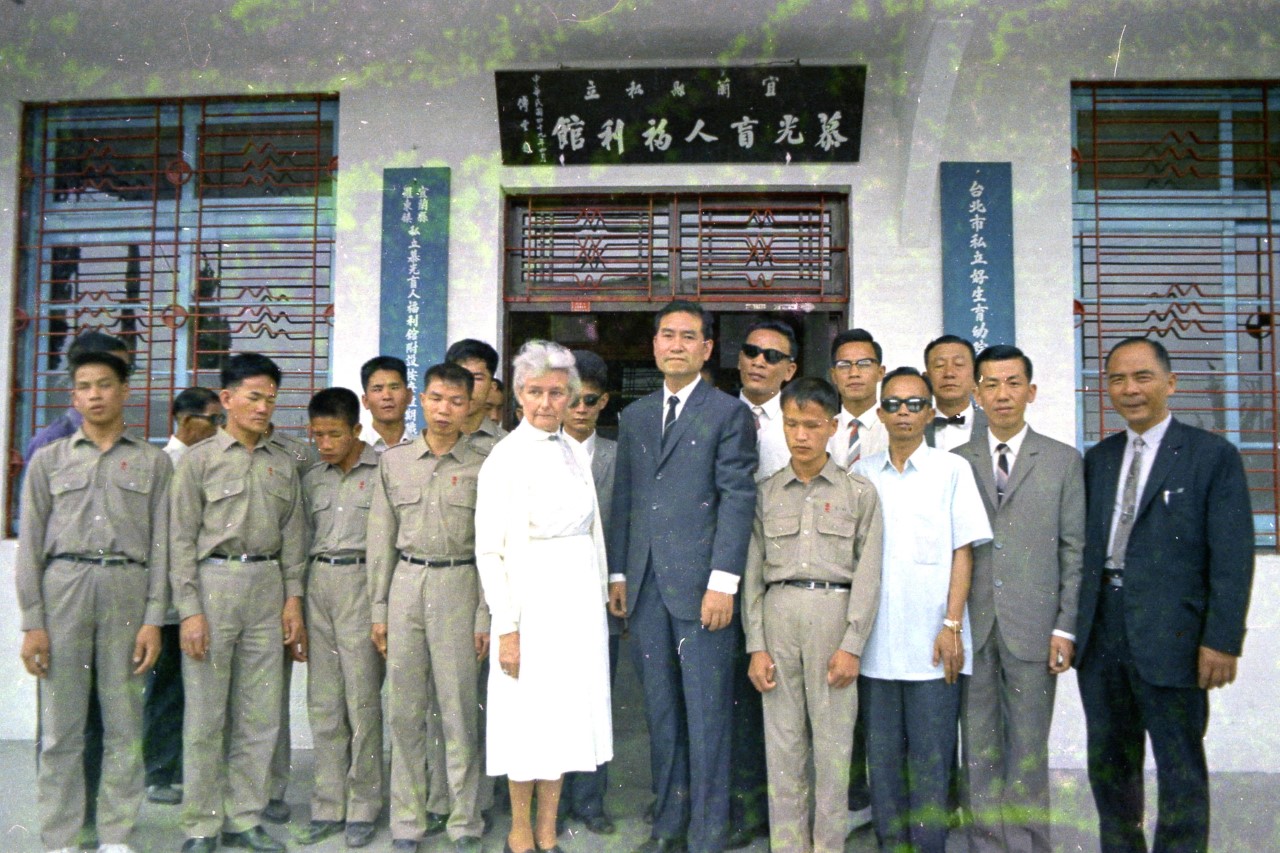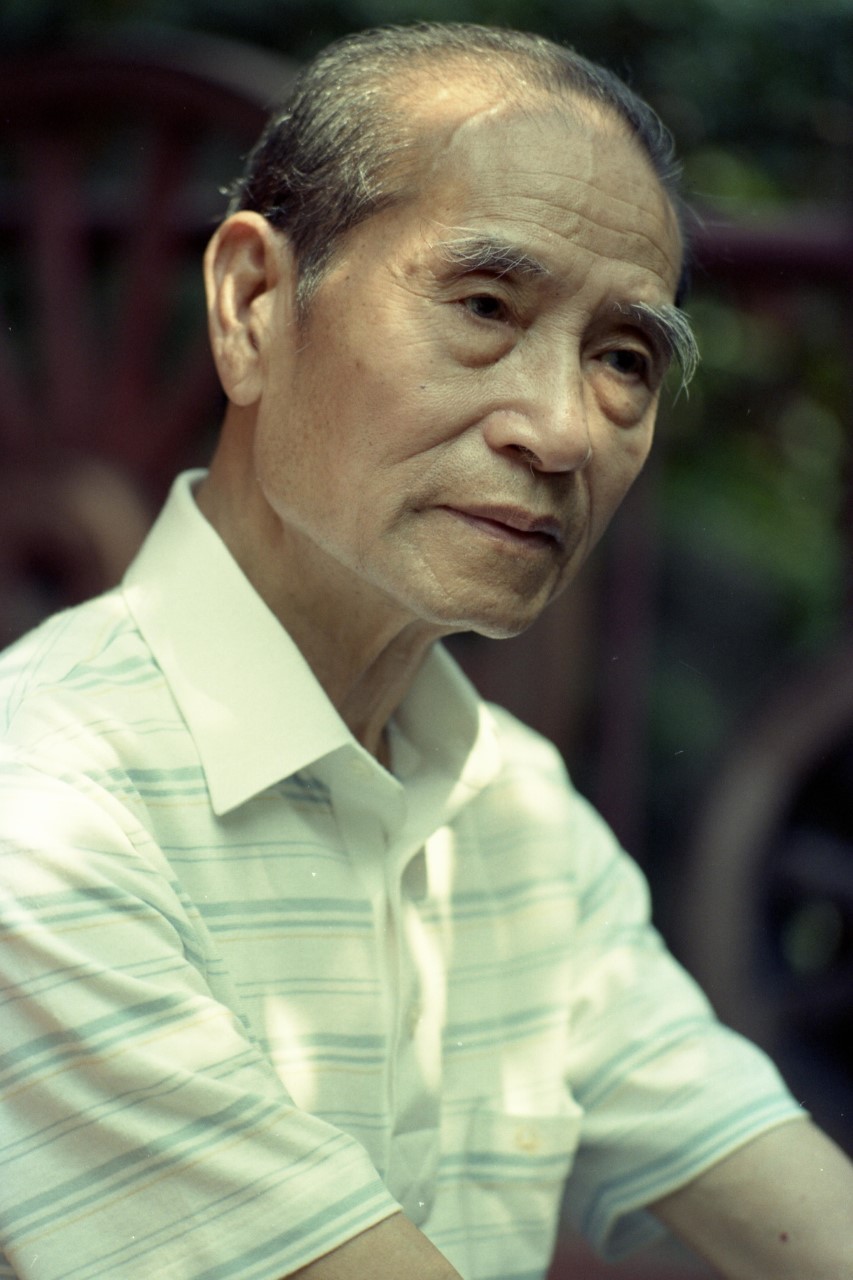deep into the mountains to see the Atayals. Only later did he switch to a Harley-Davidson, carrying the nurse and his kit around.
.jpg)
The Chens encountered many patients who fell into financial and mental despair after losing their sight. In 1959, the Chens founded Mu-Kuang Learning Center where sight-deprived youth could gain the skills to earn a livelihood. Chun-Zhi, Chens’ eldest son, is now in charge of the institution, which had been renamed Mu-Kuang Rehabilitation Center for the Blind. The institution’s mission is to help the blind rebuild their body and mind, and to promote the rights and welfare of those with disabilities.Throughout the decades, over five hundred people all over Taiwan have granduated and benefited from Mu-Kuang.
.jpg)
.jpg)
To give the blind comprehensive education and medical care, Chen went abroad from time to time to learn more advanced medical methods. He invented tools and appliances for the blind and ophthalmological uses, and started a pharmaceutical company to make assorted medicine for the eye. Students at Mu-Kuang were also offered the opportunity as interns in the company.
The Spirit of Schweitzer lives on in Taiwan
The role model for Chen was Dr. Albert Schweitzer. Chen came across his biography Schweitzer, the Man, written by Japanese physician Nomura Minoru, while making preparations for the opening of the Mu-Kuang Learning Center in town. The book details the Alsatian’s deeds in Lambaréné, French Equatorial
Africa (present-day the Gabonese Republic). Deeplytouched, Chen wrote to Schweitzer in German. Schweitzer replied from Gabon, encouraging Chen to devote himself to the education of the blind. That was the beginning of their long-lasting correspondence and friendship.
After Schweitzer’s passing, the executors gifted one fiftieth of his effects to Dr. Chen Wu-Fu. That included Schweitzer’s tableware, feed sacks, and signed wooden cross. The charity Friends of Schweitzer in Taiwan was established in 1975, on the centennial of the great man’s birth, with Chenas its first chairperson.
Chen strove to uphold Schweitzer ’s philosophy of Reverence for Life and saw himself “a friend of Schweitzer’s in Taiwan”. “Everyone has his own Lambaréné,” Albert Schweitzer once said. Luodong was Dr. Chen Wu-Fu’s Lambaréné, and he worked for the people of this land with his utmost.
Nothing is too small
Chen was right-handed, but used his left hand often to train himself to be ambidextrous. He led a rigorous and disciplined life, so that he would always have the eyesight and stable hands to perform surgeries at his best.
The eye is a delicate organ. Any mishap during an operation could wreak irrevocable damage. That was why Chen never overlooked any detail. He believed nothing in this world is too small. In one of his homilies, he concluded, “I respect every living being. It is my job to serve the people.” And he did exactly that.
Dr. Wu-Fu Forever
Chen worked from 8 am to 8 pm everyday. He went to the wards each evening to sing hymns with the patients and to spread the Gospel, because he believed encouragement and redemption in the soul was more important than alleviating physical pain. He would offer free surgeries to the poor, volunteer to see patients living in remote areas, and donate generously to charitable causes.
Chen was an avid reader and a learned man. A close civilian friend to the former President Mr. Lee Teng-Hui, Chen would send him three Japanese books every month, all personally marked and annotated. The main interviewee for the creation of this book was the aforementioned and erudite Lin Yi- Min MD, who credited his father-in-law with inspiring him to dabble in Kant, Carlyle, and Emerson.
Chen retired at the age of 72. Various maladies,perhaps a result of exhaustion, afflicted in his latteryears. Yet despite undergoing five operations, he never forgot the meaning of joy and giving. He never seemed frightful or disturbed; instead, he often consoled fellow patients with hymns and quotes from the Scripture. Dr. Chen Wu-Fu, the modest and kind doctor, passed away on November 8, 1997, but lives forever in the hearts of the people of Yilan.
.jpg)